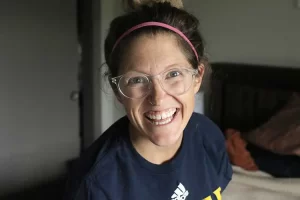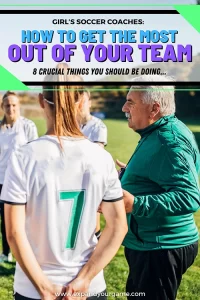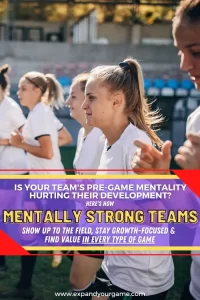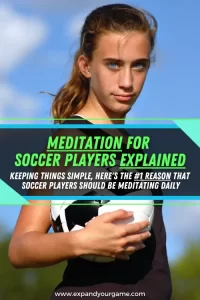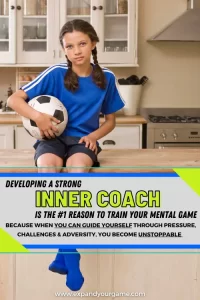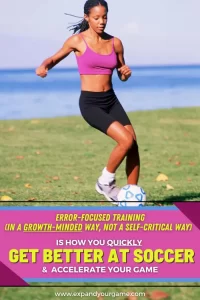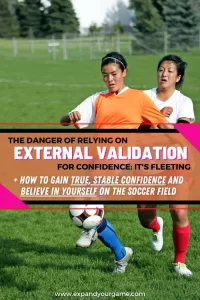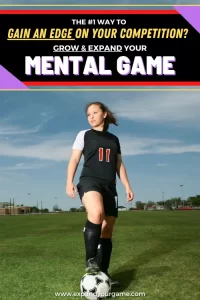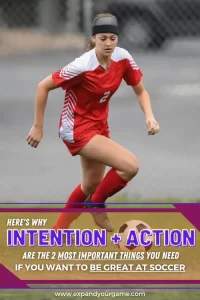If you really want to maximize your potential on the soccer field and and be able to play at peak performance, you need to get invested. You need to be regularly training on your own, actively working on your strength & fitness, focusing on getting good nutrition and sleep, and have a consistent habit of self-reflecting.
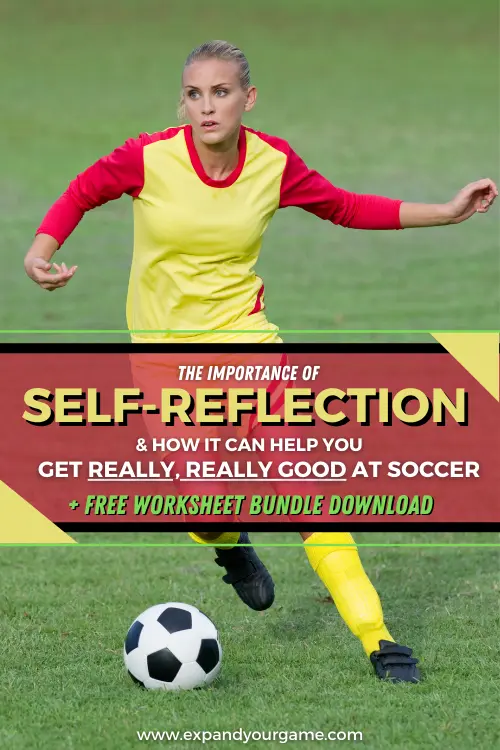
Whether we are talking about going through your game film or assessing your play using guided questions, self-reflection in soccer is one of the single BEST, most powerful, practices you can develop as a soccer player looking to improve. This is because when you get really into self-reflection in soccer, the insight you gain has the power to inspire a passion for relentless learning and self-improvement which really opens up the game in ways you never thought possible.
This Post Contains:
Self-reflection in soccer + accountability
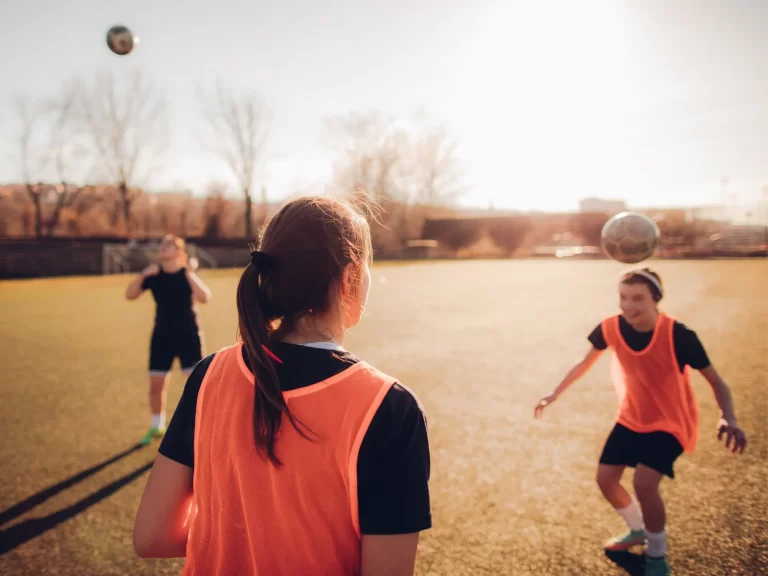
This post is going to dive into EXACTLY how to make this happen, and even includes a free worksheet bundle of 4 reflective practices to jump-start your new habit of self-reflection. (If you want to skip the reading and go straight to practicing, you can get the self-reflection worksheets here).
What is a reflective practice?
"Reflection gives the brain an opportunity to pause amidst the chaos, untangle and sort through observations and experiences, consider multiple possible interpretations, and create meaning. This meaning becomes learning, which can then inform future mindsets and actions."
Jennifer Porter, Harvard Business Review
Self-awareness is a prerequisite for self-reflection in soccer
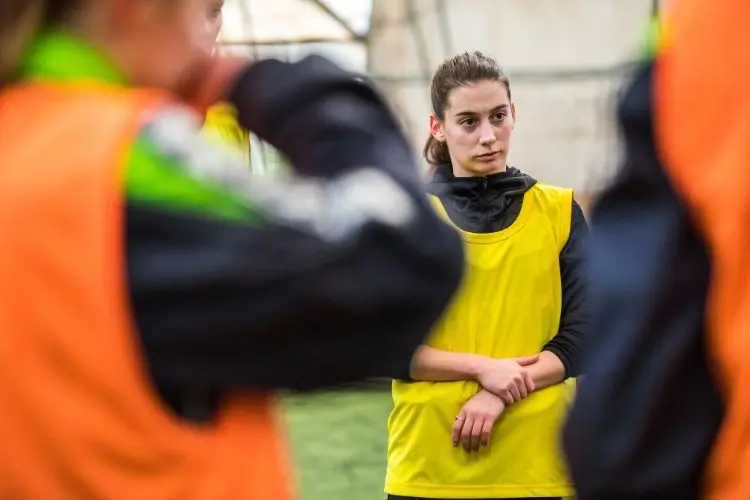
Self-compassion is a necessary part of building your resiliency skills. And if/when the negative and self-defeating thoughts DO show up, self-awareness can help you push through and calm the mind. The self-aware part of you knows why you are here: you are here to grow – and growth requires you do challenging things. Hard things.
Make self-reflection a priority: here's why
- identify strengths and weaknesses in all areas of your game
- gain resiliency skills and increase your mental toughness
- increase your confidence by helping you prepare both physically and mentally
- overcome perfectionism and fear of failure
- gain invaluable insight into the mental side of your game, including how performance anxiety affects you on the field
- increase your self-awareness skills and cultivate a healthy striving mentality
- get excited to learn more and go more in depth with certain topics
- get better at goal setting by being able to target specific areas for improvement
Grow your confidence through preparedness.
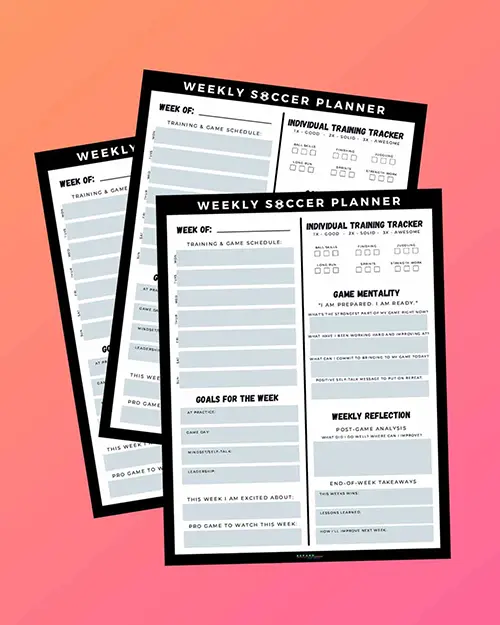
Subscribe to our email list to
Get your FREE Weekly Soccer Planner!
We respect your privacy. Unsubscribe anytime.
Here's HOW to self-reflect (+ FREE worksheets!)
When you do a reflection practice by thinking back, this is the more subjective approach – meaning it is based on what you remember happening from your point of view. It is your own personal interpretation. When you do a reflection practice by reviewing video, this is more from an objective viewpoint – meaning it is based on actual data of what happened. I often say to my players that one of the beauties of video is that you can’t argue with it.
Self-assessments

FREE self-reflection worksheet bundle
In order to help you get started with your self-reflection practice, I’ve put together a FREE self-reflection worksheet bundle with includes the following FOUR worksheets:
Worksheet #1) Post-Game Reflection PART 1: Game Assessment
Worksheet #2) Post-Game Reflection PART 2: Game Film Analysis
Worksheet #3) Individual Training Analysis
Worksheet #4) End-of-Week Reflection
Journaling & vlogging
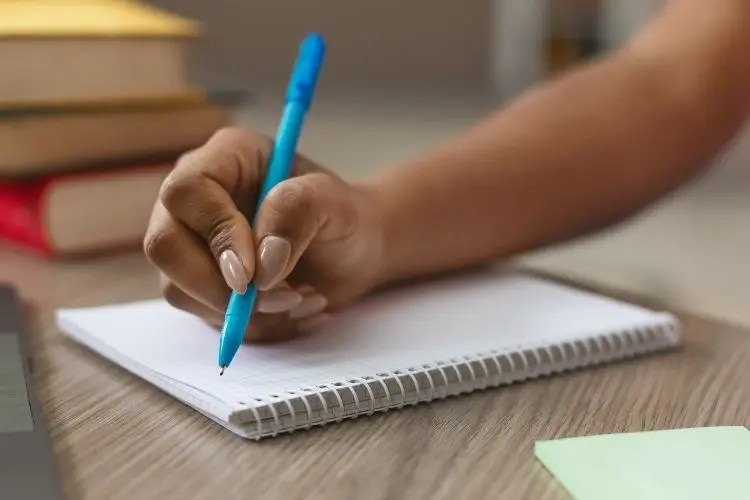
This helps you be able to suss out where you are currently at and where you need to go. Expressing yourself and getting into words how you think or feel about something is a very important first step in gaining the self-awareness and introspective that you need to to grow your game.
This type of reflection practice is self-motivated and self-guided, its more about the action of taking time to reflect than it is about exactly what you are talking or writing about. If you DO want more guidance though, start with Game Assessment in the FREE self-reflection worksheet bundle.
video is important for self-reflection in soccer
The reason I am bringing him up here is because one of the main points that he made in his USC presentation was: do not underestimate the power of self-reflection.
"We want players to learn from every touch. It wasn't great? Figure it out."
David Copeland-Smith, Beast Mode Soccer

And we’re not talking about ‘watching’ it: we’re talking about studying it (here’s our FREE Game Analysis worksheet if you want our guided video analysis questions). Breaking it down objectively and learning from it. Analyze every tough you take. Analyze what you are doing: are you standing still, making runs, manipulating the space? How many opponent’s were you able to bypass with forward progressing passes? Break things down, get detailed.
Self-reflection in soccer WILL help you get ahead
The ultimate goal, when you start with self-reflection in soccer, is to inspire and motivate yourself to get REALLY, REALLY into learning and self-improvement. Because that relentless pursuit of wanting to KNOW more, wanting to BE more and wanting to GROW more is what will get you ahead and take you to the top of your game.
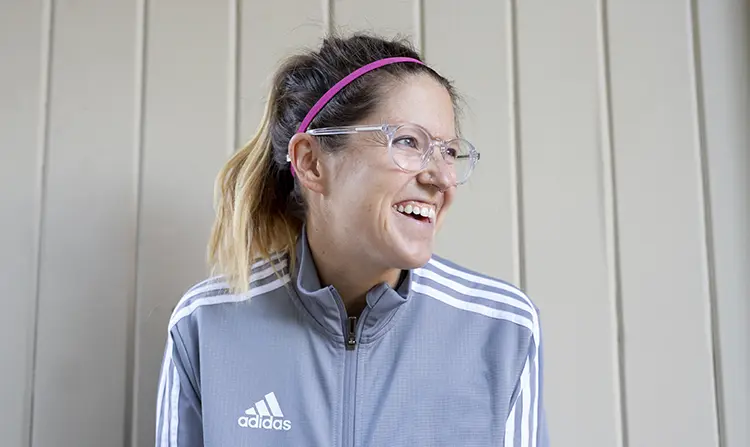
Hi everyone! I’m Jenn and I create content to help female soccer players and coaches maximize individual and team potential by developing healthy mindset skills. Join other subscribers and sign up for the newsletter for all my best tips and advice!
We respect your privacy. Unsubscribe anytime.
